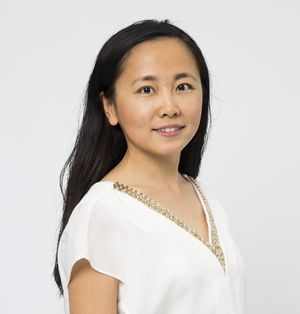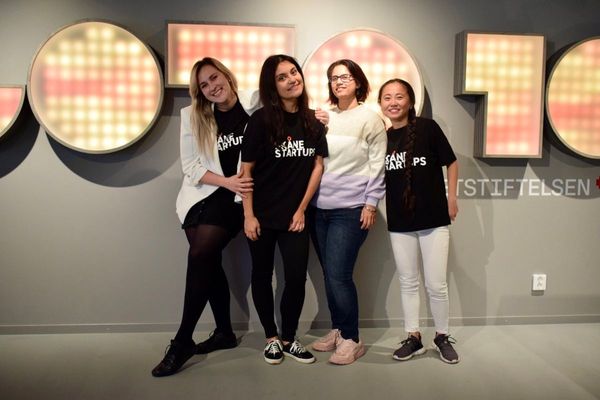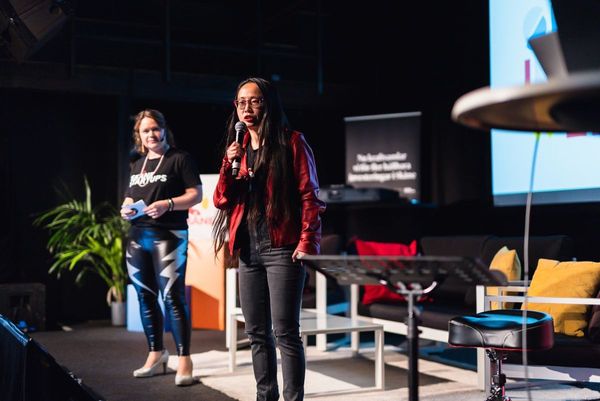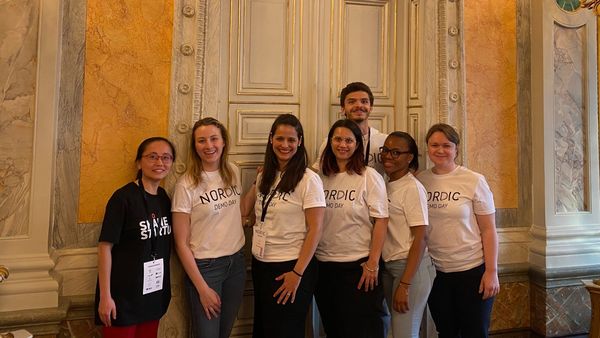MEST Africa Challenge is a startup pitching competition for early-stage startups in the following nine countries Ghana, Nigeria, Kenya, South Africa, Côte d’Ivoire, Sénégal, Rwanda, Ethiopia, and Tanzania. I’ve followed up all of their pitching events to learn about African early-stage startups.
Edtech is definitely an exciting area in Africa because of the growing population. It is critical to ensure the next generation to receive the best possible education and become employable. Below are almost all of the Edtech startups that were selected to pitch (I didn’t include those that didn’t have a functional webpage) and I’ve also included the startups that focused on staffing.
Among these startups, Tutoo+ from Côte d’Ivoire and Khalmax Robotics from Ghana reminded me of the Chinese Edtech company of Code Cat which offers coding training for youth through both online and offline channels. I had the chance to have a quick chat with the CEO of Code Cat during Shanghai Slush and his company has raised 12 billion RMB within 5 years, growing to 30+ million users and 12,000+ registered public schools in their platform. Judging from the pitch, I think that Tutoo+ seems to have a bit too broad of user focus, and Khalmax Robotics seems to still heavily focus on offline training.
SmartClass is a platform that connects students with tutors. It already has thousands of verified teachers on the platform. When I was studying at middle school in China, I remembered that my mum had to ask around from other parents and friends to find a university student to tutor me. There was no effective channel to find a suitable tutor. Nowadays, Chinese parents and students have quite many choices, such as using platforms like Yousi Tutor (It raised around $430,000 of angle investment in 2015 and Series B in 2018). I’m curious how SmartClass in Tanzania will further develop in the future.
Gradely from Nigeria seems to have the most solid team among all of the startups. One of the founding team members has built a successful business earlier with over $ 1 million in yearly revenue.
Below are the startups and their pitches:
1, Tutoo+ (Côte d’Ivoire)
Today robotics, artificial intelligence, the Internet of Things, and much more are no longer movies. There is overwhelming evidence showing that those skills are needed in the current workforce. In the future, statistics by McKinsey and PwC highlight that by 2030, they’re gonna have a high career opportunity in the ICT sector but a growing skill-shortage in Africa. Despite this alarming statistic, Francophone Africa is not adapting fast enough to change its education system. As a result, many students graduate without jobs because of the gap in what students learn at school and what the employer is looking for. This is because students may lack the right skills, not necessarily because of a lack of jobs.
Tutoo Plus is created to bridge this gap through an innovative e-learning platform (web and mobile app). We provide disruptive education on cutting edge technology and digital-oriented entrepreneurship skills in Francophone Africa.
First, our course price is three times lower than the market competitor. Second, we provide localized payment methods, such as mobile money. Three, we have a job matching algorithm where we are working with employers to advertise job opportunities and match them with the right candidate. Fourth, internet connection may be an issue in Africa, so we partner with IT hubs across our region so students can get access to our course without paying for the internet.
We have done market research in 17 countries over 8 months, with a sample size of 6000 participants and 5000 pilot users. Our target customers are high school to university students and young professionals. Our competitors are e-learning platforms from the western countries, however, their teaching language and payment method are not adaptive to the local markets. Our revenue comes from online subscriptions and in-person training/workshops. Our projected revenue in Year 1 is $ 314,000 with a 3% cumulative yearly.
Currently, we are launching at Côte d’Ivoire, Senegal, and Togo. We have 17 categories of course covered, 18 confirmed instructors, 5000+ pilot users, and 100+ daily visitors to our site. We’ve also received awards from African Union, Orange Social Venture, and many others.
2, Khalmax Robotics (Ghana)
http://khalmaxsoftwaresystems.com/
Khalmax Robotics is a Ghanian edtech company that provides robotics and AI education services. According to a recent study, education in Africa was behind the Western world by 70 good years, what this means to African parents is as the world is in 2020, your child has started education in1950. Less than 7% of engineering graduates have the necessary skills to fit into the job market after graduation from school. Education has been limited to passing exams. Very little of what we learn in school is applied in solving real-life problems.
Khalmax Robotics is a project that trains students from eight years old to the university level to create and build problem-solving robots using electronic waste. Our goal is to instill innovation in African students, re-making electronic waste into useful robots, and prepare graduates to fit into the future job market.
The government statistics reviewed that there are 14 million Ghania students for ages 8 to 25 which are our target audience. There are 60,000 schools in Ghana alone and the edtech market is estimated to be $250 billion and is growing at an annual rate of 17%.
First, we offer robotics and mobile app development training. We partner with schools to establish robotic clubs known as Khalmax Robotics clubs through which parents enroll their children in extracurricular activities. We trained over 500 students in the last three years. We have educational robots which are teaching aids used by students to assemble and program robots. They consist of microcontrollers, wheels and sensors. We also use Google maps to identify 15 to 20 students living within a specific radius and create a robotic class for them automatically. Second, we created a robotic education app this year. Parents can download and their children can participate in the training digitally.
Parents pay monthly of $20 to $30 and we have 120 paying students monthly. We also sell the educational robots and microcontrollers which students need to use in the training. In the last three years, we’ve generated $45,000 in revenue in total without any external investment. Ghana Robotics Academy Foundation is our competitor. However, we provide a 60% cheaper cost and we are also able to train kids to build robots in less than six months.
We are seeking $150,000 to scale the robotics club to 60,000 students and generate $ 2 million in revenues in 2.5 years.
3, Bag Innovation (Rwanda)
The majority of students in Rwanda do not match employees’ needs. This is due to a lack of exposure to employers and a balance between theory and practices. Yet local employers are having difficulties identifying the right talent and there is a high cost on entry-level training.
BAG is a gamified digital platform that collaborates with universities and employers in East Africa, offering real-time access to experience-based learning for university students. Through our platform, we deliver interactive assessments from employers. Students can receive personalized career guidance from year one of their students and acquire the right skills upon graduation so that we can bridge the gap between job seekers and employers.
First, the student can get access to different case studies from specific companies in the African region. Second, the student can receive both feedback from the employer and BAG on the skills that he needs to improve in order to get the entry-level positions in that specific company before he graduates. Our goal is to substitute the traditional CV with modern skill profiles that improve student’s employability. Our gamification technology has been built by the Candy Crush creator. This technology helps us with retention, conversion, and engagement of the students. The students earn experience points, upgrade their levels, and have an enjoyable experience while working with their career development.
Our target customers are universities and employers. Universities pay $200–600 per month, depending on the specific needs of the universities. The employers pay a talent fee of $100 per hired talent, or a $20 monthly subscription fee to boost one of their cases. We’ve worked with 8% of students in Rwanda and our goal is to pass 15% this year. We connected 8000+ students, are working with 100+companies, and have 540 students were successfully placed. Currently, we have a monthly revenue of $3,000. We are securing more contracts from universities which will pay between $1,000-$3,000 monthly subscriptions.
4, Rokkup (Rwanda)
Rokkup is a platform that allows companies to find local, reliable workers easily and at short notice.
5, Gradely (Nigeria)
200 million African students are in school but are not learning. The root cause is the learning failure compound over time. What if the education system can identify a student’s problems much earlier? Gradely is harnessing the power of data and artificial intelligence to help schools and parents intervene in real-time to children’s learning gaps.
For students and parents: the students take homework and practice; our systems recommend relevant exercises based on student’s learning skills and levels on a daily basis; the parents can get real-time feedback on learning progress. We charge $5 per month on content subscription (practice and video lessons), and $7 per on-demand tutor sessions.
For schools: they just need to set up classes, use AI-assisted assessment, and view students' reports. We charge $15 subscription per student per year and $50 for the premium subscription.
Since our launch in 2019, we have grown 120% month on month. Currently, we have $5,000 monthly revenue, 250 paying parents, and 4 paying schools. By Q4 2020, we estimate the company revenue to be $155,000, with 2500 paying parents and 150 paying schools.
6, At Your Service (Nigeria)
AtYourService is a tech-enabled human resource platform that helps companies operating in Africa to easily recruit the right talent for part-time and full-time roles. We focus on helping each organization find professionals who match their immediate needs incompetence, attitude, and cultural fit. One company matters because of Africa’s job challenges:
- More than 30% of the African youth population is unemployed. In Nigeria, over 23% of the working population can not find jobs, and 20% of those with jobs grossly underemployed;
- Inadequacies of education curricula in most African nations have created a wide skill gap in today’s labor market;
- The right talents are hard to find for a large number of organizations;
Our HR platform makes it easier for recruiters and employers to search, find, and hire the right talents. The system collects all the relevant information about the job seeker. Each job seeker has access to streamlined educational content for core job skills.
With local and international competitors such as SeamlessHR, Workforce Group, Jobberman, Indeed, Workable and Greenhouse, we stand out because:
- Our platform’s big asset is our pre-recorded video interviews that reduce physical interviews;
- Our platform helps talents acquire verifiable skills and become easier to hire;
- Our project management capabilities have increased repeat services;
- Without platform recruiters can perform immediate hires with a simple search;
In 2018, there were over 705 million people of working age in Africa. By 2030, there will be nearly 1 billion of them. Our company is projected to have a 5% market share of $101.11 million in serviceable obtainable markets. In the last 20 months, we have over 100 corporate and individual clients across our part/time and full-time recruitment offerings; over 4000 direct users comprising full-time and part-time talents; total sales revenue of $185,000.
We charge a one-time fee (10% of agreed annual salary for the new hire) from the recruiter; we also charge 10% of the total cost for outsourced projects and the percentage of revenue earned by our education partners. Within a year, we aim to onboard 100,000 users, make 15,000 job connections and earn $2.2 million in revenue.
7, Edusko (Nigeria)
It is essentially a Craigslist of all the schools in different countries in Africa. Parents can browse the school information and send in their children’s applications through their website.
8, SmartClass Company LTD (Tanzania)
https://www.smartclass-tz.com/
SmartClass is one unified mobile and web application that matches students to qualified tutors based on the student’s learning level; provides virtual helpers (education bots) of quizzes and homework. A student can search a tutor by name, location, and subject, message the tutor for free, book a lesson, pay the session fees, and offer feedback to the tutor. The value proposition of SmartClass:
- Trusted, affordable, and vetted tutors;
- Zero fees for both tutors and students to register;
- Online classes that support one-to-one and group learning;
- Highly personalized lessons;
The annual tutoring market in Tanzania is $ 3.51 billion. Currently 15% of 15 million students can afford personalized lessons. SmartClass targets 60% of these students. On average students spend $50 per week in tutoring.
Currently, we have 5,600 registered tutors and 11,500 students. The retention rate is more than 70% and we have $15,500 in revenue in Q1 2020. We have raised a pre-seed fund of $5000 from Tony Elumelu Foundation and received the Commonwealth Youth Award of 2020 with a cash prize of £1000.
SmartClass operates on a commission-based revenue model for each fee paid by the students and a subscription revenue model which charges parents for $150 annually or $40 monthly to book any tutor they want from SmartClass. We are looking for $50,000 to further develop our business: 30% on product development, 50% on marketing, and 20% on hiring people.








